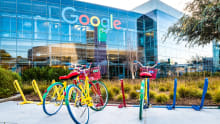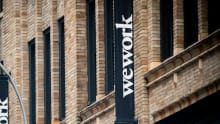Q&A with Rethink Work's author, Eric Termuende

"People don't enjoy the work they do and I'm working to remove the negative connotation associated with work by helping companies understand their culture, attract the right people, and keep them as a result."
Eric Termuende is on a noble mission —to change the way we think about work. A bestselling author, speaker, and entrepreneur, co-founder of NoW Innovations, and a thought-leader on optimizing workplace culture, the future of work, and engagement in the workplace, Eric is on a pursuit mission to close the talent gap, communications gap, and age gap in the workplace. From being featured in Forbes, Inc., Thrive Global, and the Huffington Post, to being recognized as one of only ‘100 emerging innovators under 35’ globally by American Express and an active ‘Global Shaper’ with the World Economic Forum, Eric has also been the Community Integration Chair for Global Shapers Calgary, a community that functions under the World Economic Forum.
Eric’s book 'Rethink Work' deals with one of the big challenges that employers face today: finding and keeping the best employees, especially at a time when millennials dominate the workplace.
Entrepreneurship for you started early on. Tell us more about it and what prompted you to do what you do today?
Entrepreneurship wasn’t my first choice. More than anything I wanted to be working for one of the Big Four consulting firms in Canada. Whether it be poor grades, a poor resume, or a broken recruiting system, like many others, I didn’t get the interviews and was forced to come up with a plan B. Endlessly thankful for my at-the-time co-founder, we started up a venture essentially solving the problem I was faced with: How do we get companies working with the right people? I then later realized that it wasn’t the consulting job I wanted, it was the ability to do work I loved to do and sustain a life I loved living. Originally we built a tool that quantified workplace culture. We took the intangibles (communication, pride, trust) and put numbers behind them. We believed that companies could be differentiated on their cultural fit (now I call it experiential alignment) rather than just the skills needed to do the job, especially in competing companies (accounting, finance, etc.) The results came in and we found that generations didn’t really value different things; that people with different values, value different things, and so I started speaking on stages at conferences about the workplace, talent attraction and retention, and culture development. 170+ stages and here I am!
Your mission is to change the way we think about work. Why should we change the way we think about work?
If we break down the weekday, we spend more time working than we do sleeping or being with our family and friends. If we don’t enjoy the work we do, we don’t enjoy that one thing that occupies more time than anything else. It seems crazy to me that people don’t enjoy the work they do and I’m working to remove the negative connotation associated with work by helping companies understand their culture, attract the right people, and keep them as a result.
You say that “To keep the best employees, companies need to focus not on what they do, but how they do it, with whom they do it, and why?” Tell us more about this.
We’re often told to find or follow our passion. While this advice is well-intended, I actually think it is bad advice. Every one of us has multiple things that make us feel passionate and if we keep trying to chase that one thing, we’ll never find it. Instead of finding that one passion, I say we find the things that make us feel passionate. Realize that happiness is all around us and doesn’t need to be chased. With all of this said, I believe we can be doing one of the countless things for work, what that the way we get it done and who we do it with is more important.
Do you think (in your experience) that organizations are doing what it takes to attract, hire, engage, and retain talent?
Generally speaking, not even close. If we look at a job description today, it reads more like a skills and requirements checklist, not a description of the job. If the average employee is spending 47 hours at work and has no idea what their experience is going to be before they walk in the office, how can we possibly determine if there is an experiential alignment or not? Instead, I’d like to see companies talk about the average time they get to and leave work, how many emails they get in a day, what the office design looks like, how many hours a week people spend in meetings, how many are on their immediate team, what performance management looks like whether there is remote/flex opportunities, etc. If we can start talking about the experience at work (how we do our work and who we do it with), it will be a lot easier to attract the right people in the first place. Right now research is showing that people graduating will have 13 jobs by the time they’re 40; I’m trying to reduce that number and have people find the right fit sooner. Right now I feel it is a roll of the dice.
Is it about focusing on “employees as individuals” or focusing on the “generation”?
It has to be about focusing on the individuals, not the generation. Great work by David Allison (Valuegraphics) shows that if we grouped people based on their generation alone, that they only have 11-14 percent of their values, wants and needs aligned. If we grouped people based on values, we can be up to 8 times more effective for every dollar spent. Companies need to be talking about who people are (values), not what (age, sex, hair color) people are.
The first few lines of your book mention “The need to re-humanize work is stronger than ever”. Why re-humanize?
We check our phones on average 85 times a day. We spend 3.5 hours a day on our phones, 10 hours a day in front of our screens. We can date from our screens, order food to our door from our screens, talk to people from them, and on and on to the point that we can go a full day without actually talking to someone. The scary part to me is that we’re still in the infancy of the Internet and its capabilities and if we don’t focus on people and relationships (in person), we’re going to all be alone.
You often talk about the future of workforce and NoW of work. What are these concepts?
Me and my co-founder Rocky Ozaki believe that a NoW of Work workplace is rooted in Trust, Belonging, Best tools, Personal Development, Agile and Innovative, Non-hierarchical, Remote/flex, opportunities, and Collaborative.
Culture is all of this and where I think we have it wrong is that we are trying to fix culture. We shouldn’t be working to fix culture; we should be fixing the things that contribute to it. If we can work on the pillars above and work to improve the experience of our people, culture improves as a result. My thinking is that we can’t have an optimized culture if we don’t have the right people in the company in the first place. We have it backward. Culture and HR should be a proactive exercise where we get the right people on the team in the first place, not fix problems because we never had them there in the first place.
If we find meaning in the work we do, we can find purpose, impact, and value along with it — purpose isn’t universal; purpose is whatever we (as individuals) feel connected to
The digital revolution is redefining the way we work and even the concept of “work”. How do we find purpose in the work we do and happiness in the lives we live?
I think we inherently live in a scarcity mindset and think that the right job will never be there for us. What I suggest is that we each write down 20 things that put a smile on our face and reverse engineer a job that will allow us to hit as many of those things as often as possible.
The idea of purpose has me perplexed as well. Purpose for you is going to look a lot different than purpose looks to me. The same goes with impact, value, and other buzzwords we use today. If we find meaning in the work we do, we can find purpose, impact, and value along with it. Purpose isn’t universal; purpose is whatever we (as individuals) feel connected to.











